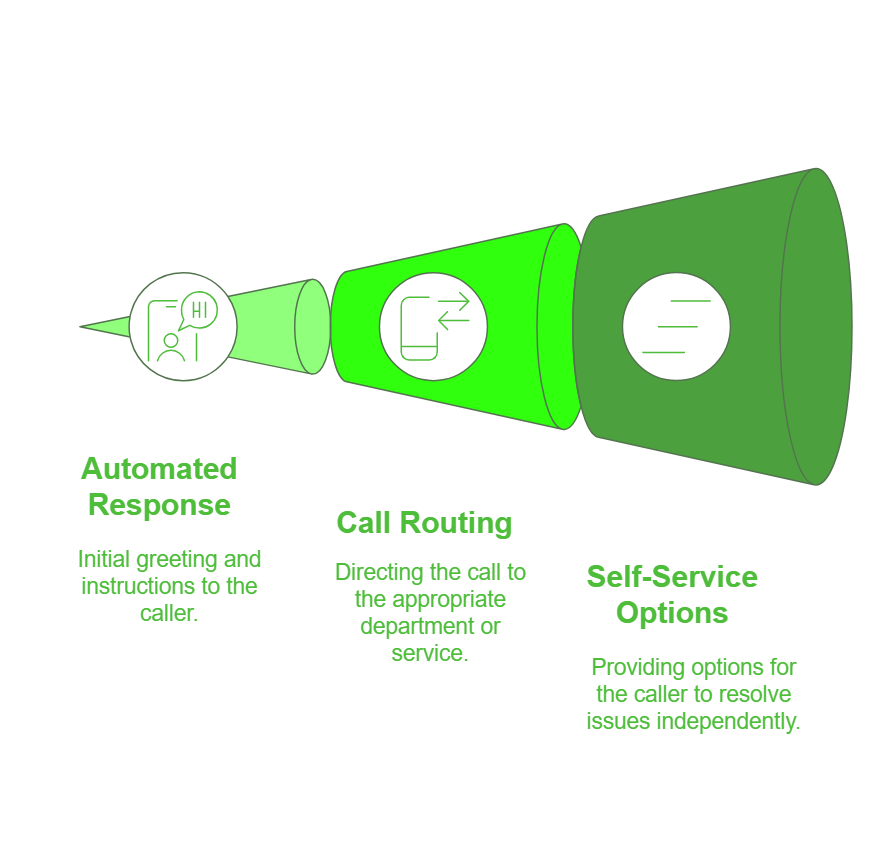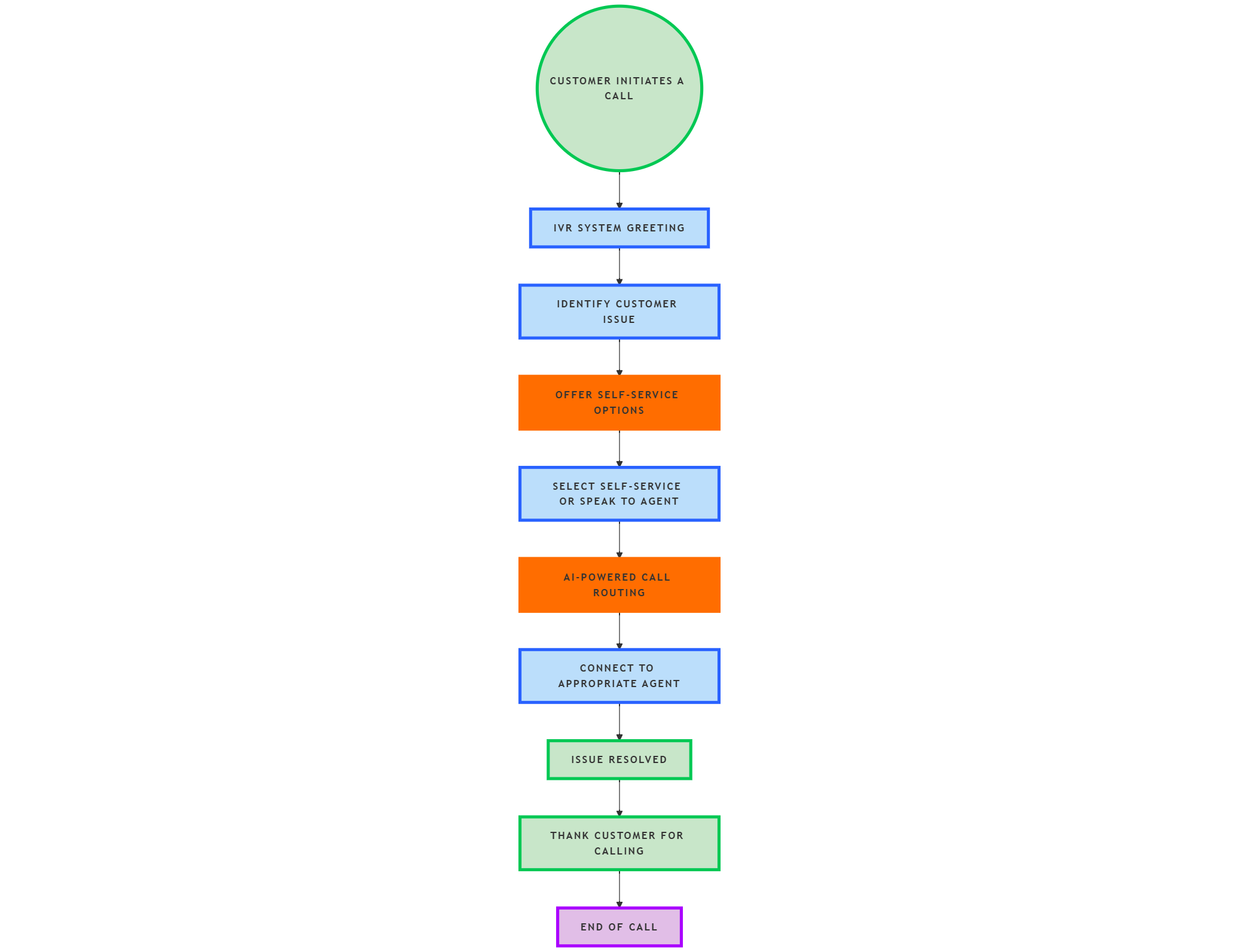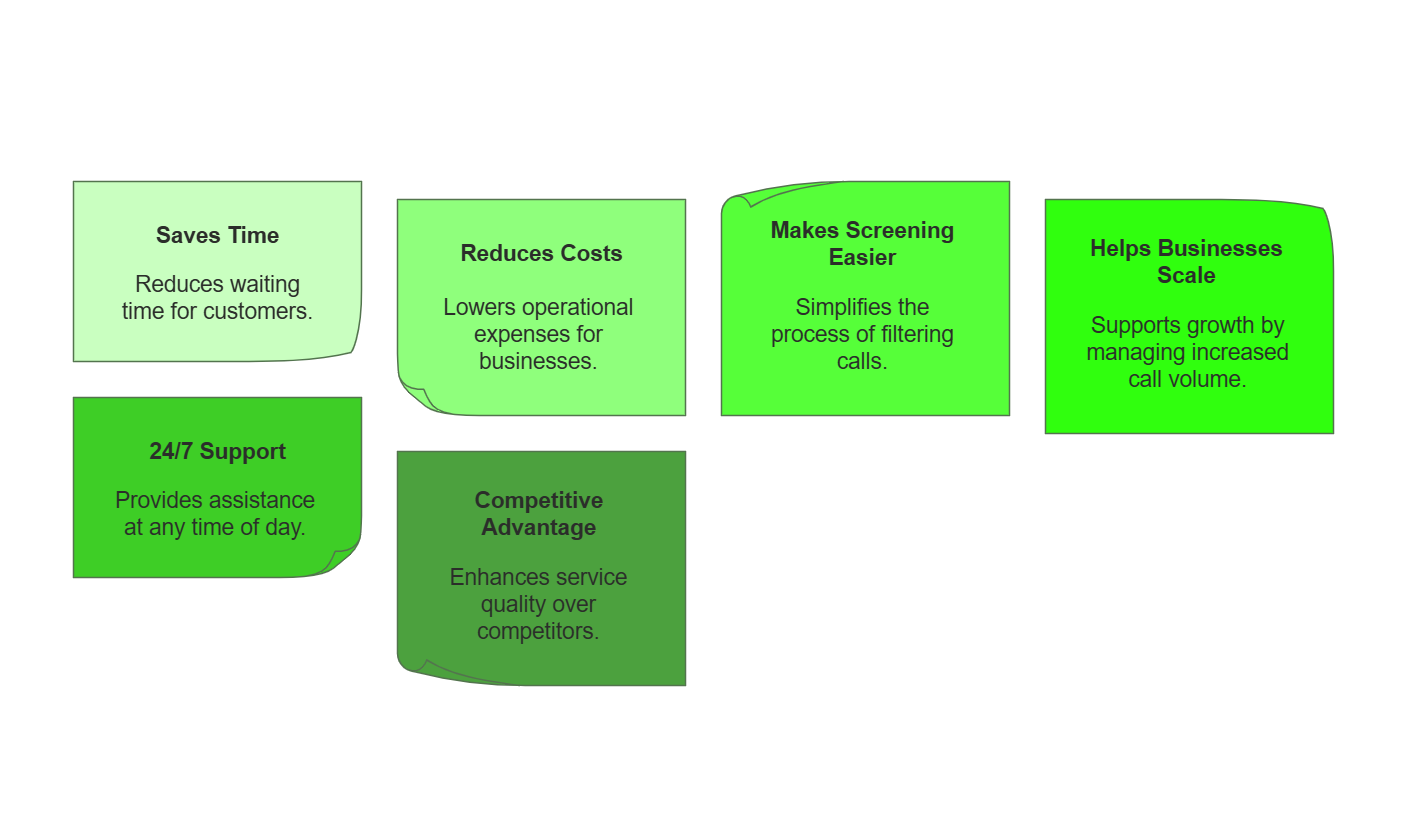Last updated on October 25th, 2025 at 12:46 pm
In 2025, businesses are evolving rapidly. The digital revolution is transforming operations, and customer expectations for efficient, personalized service are higher than ever. Interactive Voice Response (IVR) systems are crucial for meeting these demands. Many businesses are now automating processes with cloud-based telephony, and IVR systems are a key component for customer self-service and effective call flow management
Today almost every business is shifting its operations to the cloud by automating its processes using various components of cloud-based telephony. One such component is the Interactive voice response(IVR) system, an effective form of customer self-service and call flow management.
Table of Contents
What is IVR?
IInteractive Voice Response (IVR) is a powerful VoIP (Voice over Internet Protocol) technology that automates business communication. It enables callers to interact with a pre-recorded voice menu using voice commands or keypad inputs, helping route calls to the appropriate department quickly and efficiently.
Key Benefits and Uses of IVR:
- Automates Call Routing: Directs callers to the right department (HR, sales, customer service) without the need for a live operator.
- Boosts Operational Efficiency: Reduces wait times and handles large volumes of calls with ease.
- Enhances Caller Experience: Allows for faster resolution and professional engagement.
- CRM Integration: Easily integrates with Customer Relationship Management (CRM) systems for personalized caller interactions.
- Versatile Use Cases: Ideal for HR teams handling job inquiries, sales teams managing leads, and customer service teams offering support.
By implementing IVR in your VoIP setup, you can streamline communication workflows, improve customer satisfaction, and boost team productivity across departments.
Visualizing the IVR Call Flow: How Interactions Unfold

IVR System Components & Functions
| Component | Function |
| Voice Recognition | Allows customers to interact using voice commands |
| Call Routing | Directs callers to the right department based on input |
| Self-Service Options | Enables customers to solve queries without an agent |
| Multi-Language Support | Enhances accessibility for a diverse customer base |
| AI-Driven Analytics | Monitors calls and provides data-driven insights |
How Does it Work?

An interactive voice response system is a component of cloud telephony. It integrates computer and telephony technology to create an automated system for callers to access information. It uses a pre-recorded message to route the calls through a predetermined path. You can customize these messages as per the caller’s requirements. Thus, you can set up an IVR according to specific business needs.
It navigates the caller’s way to a specific department or agent based on their responses to the questions and helps them quickly find an appropriate solution. Manual keypad entries are processed through Dual-Tone Multi-Frequency signals or DTMF tones which trigger intelligent call routing.
Natural Language Processing(NLP) is used to evaluate verbal responses. It is a type of conversational artificial intelligence with speech recognition capabilities. It scans the caller’s responses picks up keywords, sentences, and phrases, and routes the call according to the predetermined flow.
To understand the broader context, explore our comprehensive guide to Cloud Telephony
Types of IVR
Here are the two popular types of IVR systems:
1. Inbound IVR
As the name suggests, in this type of IVR system, you use an inbound IVR for interaction with customers who are calling your business. Whenever a caller dials your business number, an automated inbound IVR system will instantly interact with them and resolve their queries. The two main goals of an inbound IVR are to reduce the number of unanswered or missed calls and reduce the burden on the call center agents during peak hours.
2. Outbound IVR
An outbound IVR, on the other hand, focuses mainly on outgoing calls. For instance, the calls that are made to potential and returning customers with pre-recorded messages. The message could be anything from paying an outstanding bill to order updates. Many businesses use both inbound and outbound IVR together to reap the complete benefits of call automation.
Key Considerations When Choosing an IVR Solution
Selecting the right IVR (Interactive Voice Response) solution is crucial for streamlining communication and delivering a superior caller experience. Here are the essential factors to keep in mind before making your decision:
1. Must-Have Features
Look for an IVR system that offers:
- Customizable call flows
- Multi-language support
- Speech recognition and touch-tone input (DTMF)
- Voicemail routing and call queuing
- Time-based call routing
- Call recording and analytics
These features ensure your IVR system can handle a wide range of business needs effectively.
2. Scalability
Choose a solution that can grow with your business:
- Supports increasing call volumes
- Easily adaptable to add new departments or teams
- Cloud-based systems typically offer more flexible scalability
3. Integration Capabilities
Your IVR solution should seamlessly integrate with:
- CRM platforms (e.g., Salesforce, Zoho, HubSpot)
- Helpdesk tools (e.g., Zendesk, Freshdesk)
- Marketing and analytics tools
- This enables personalized caller experiences and streamlined workflows.
4. Reliability & Provider Support
Ensure the provider offers:
- 24/7 customer support
- High uptime guarantee (ideally 99.9%)
- Detailed onboarding and training resources
- Ongoing maintenance and updates
Reliable support ensures minimal downtime and smooth operation of your IVR system.
Benefits of an IVR system

These are the Benefits of an IVR system:
1. Saves Time
Candidates want their queries and issues to be solved as soon as possible. Therefore, the demand for this self-service automation is increasing significantly. IVR provides options like voice and touchpad to respond to the pre-recorded message and get the information they are looking for. Hence, it saves the waiting time of both the caller and the business.
2. Reduces Costs
The cost of using an IVR phone system is much less than a live chat or telephone-based customer service. Therefore, a company can save a significant amount by using this system to automate its communication process.
3. Makes Screening Easier
It automates the communication process and makes the screening of candidates easier. The candidates have to answer a few simple questions, and interested and qualified candidates can be shortlisted in minimal time.
4. Helps Businesses Scale
An IVR phone system is flexible enough to provide easy scalability as compared to traditional systems. The companies can use automation software and integrate APIs that offer intelligent routing and multichannel support into their existing systems.
5. 24/7 Support
In today’s globalized business environment, companies must be available to serve customers in different time zones. An IVR system enables businesses to offer round-the-clock service without requiring employees to work at all hours. This continuous availability ensures that customers can access the help they need, whether it’s during the night or on weekends, providing a significant competitive advantage in 2025’s fast-paced business landscape.
6. Competitive Advantage
In today’s competitive business landscape, every company is striving to offer the best customer experience. Adopting an IVR system in 2025 sets your business apart by offering faster, more efficient, and reliable service. This can be a decisive factor in winning and retaining customers, giving your business the edge it needs in a crowded market.
Conclusion
The role of an IVR system in business communication is more vital than ever as we move into 2025. Offering 24/7 support, enhancing customer experience, and driving cost-efficiency are just a few benefits businesses can leverage. With technological advancements, modern IVR systems can offer even more value by personalizing service, providing deep insights, and integrating with other communication channels. If you want to stay competitive in 2025, an IVR system is no longer just a nice-to-have—it’s a must-have for businesses aiming to deliver exceptional service and scale effectively.
With advancements in AI and automation, IVR systems in 2025 offer smarter and more efficient call management. Whether for customer support, lead generation, or sales automation, FreJun’s IVR solutions ensure businesses stay ahead of the competition. Enhance customer experience, reduce costs, and streamline operations with AI-driven IVR today! 🚀
Further Reading: What is IVR?
Frequently Asked Questions
FreJun’s IVR system lets you set up a customizable menu with voice prompts. When a caller dials in, they’re guided through options and routed accordingly. It improves call efficiency and ensures smoother customer experience.
Yes! Frejun allows full customization of IVR menus. You can create multi-level menus, upload your own audio messages, or use text-to-speech prompts tailored to your business needs.
Not at all. Small and medium businesses also benefit from IVR by handling calls professionally, reducing missed leads, and routing customers to the right team faster.
Absolutely. FreJun’s IVR dashboard makes it easy to modify menus, change greetings, or reroute calls in real-time without technical help.
Yes. Frejun offers detailed call analytics including call volume, drop-offs, menu selections, and more to help you optimize your IVR setup.
Yes, FreJun supports integrations with popular CRMs. This lets you automatically log calls, track customer interactions, and provide a more personalized experience.
